Idea by
Dejan Todorović, Ana Zorić, Jovana Bugarski, Mladen Pešić, Aleksandra Đorđević, Aleksandra Milovanović, Miloš Kostić, Neda Sokolović, and Andrej Josifovski
Arhitektura pandemije
https://issuu.com/redakcijaaf/docs/publikacija_covid_19_finalno_def
Call for ideas 2021
Covid-19 Challenges: Architecture of Pandemics
Covid-19 Challenges: Architecture of Pandemics
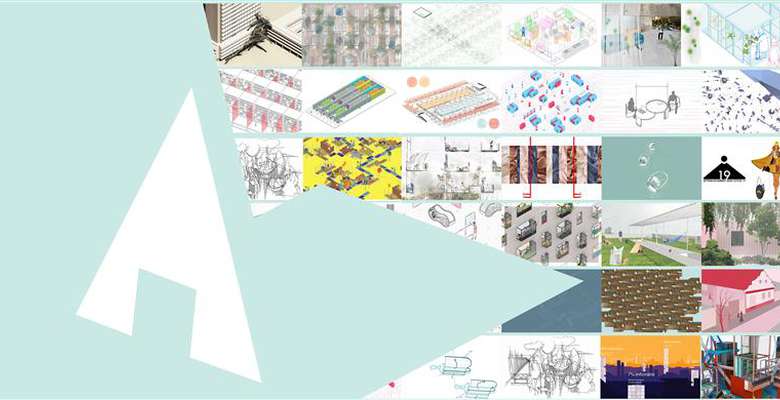
- New alliances
The impact of the online student workshop can be recognized on two levels. The first one reflects the professional contribution coinciding with the COVID–19 challenges in the form of 29 conceptual designs. The architecture of pandemics formed a scope within which participants were encouraged to seek the answers to contemporary societal challenges, in both a process and problem-oriented manner. In that order, the disciplinary framework of architecture and urbanism is once again illuminated as a symbiosis of technical, technological, socio-humanistic, and artistic aspects. The second level of contribution is reflected in the developed model and methodological framework of online learning, which can serve as a model for the realization of similar pedagogical activities in the future. Future actions should focus on enabling active experimentation in times of pandemics while using the advantages of an online environment to gain valuable insights that could enrich the learning experience.
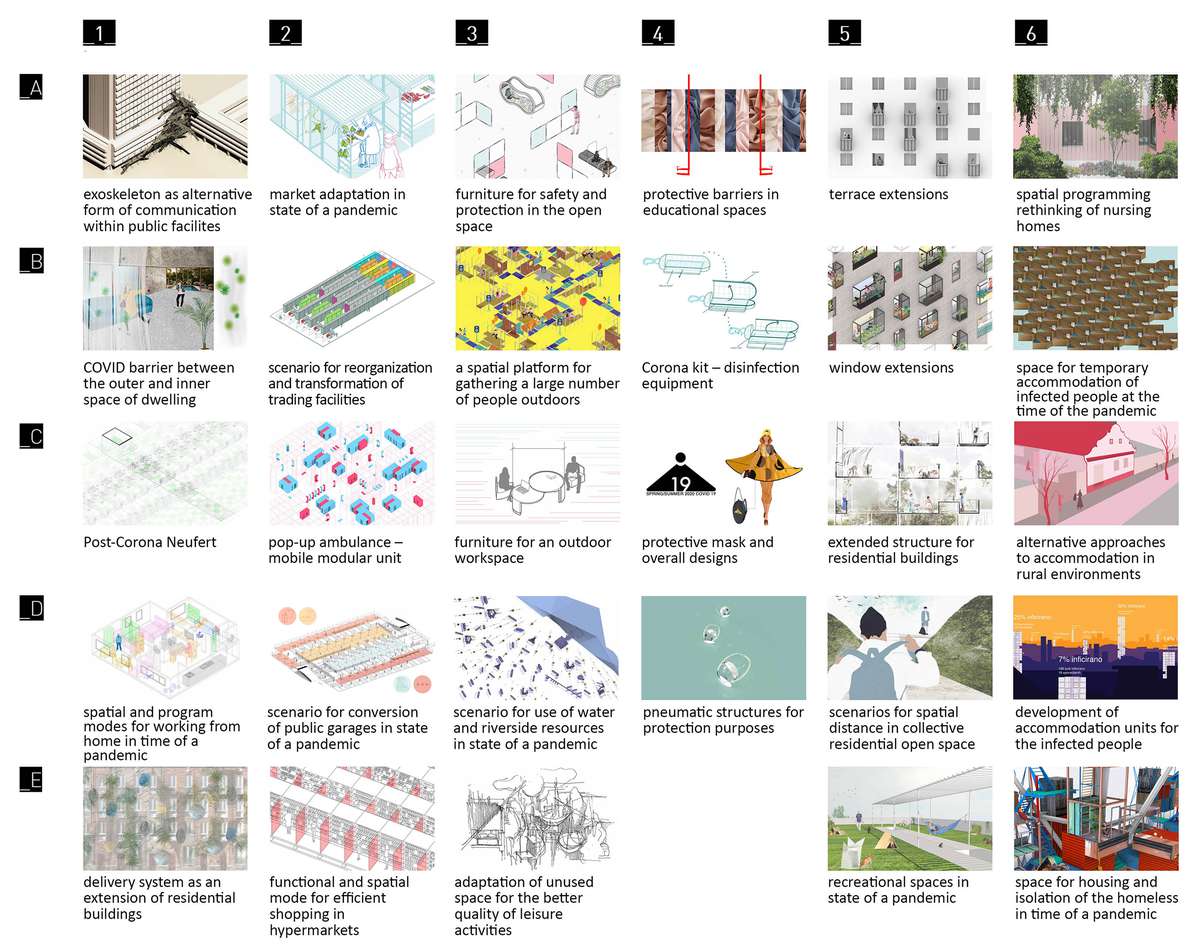
In the workshop assessment and dissemination phase of the research, the results of the workshop were systematized in the form of 29 design proposals grouped into 6 thematic frameworks: (1) Improvement of Functional Performance of Space, (2) Alternative Modes of Space-use, (3) Urban Equipment and Public Spaces, (4) Design of Protective Equipment - Prototypes, (5) Altered Everyday Life, and (6) Models of Accommodation for the Most Vulnerable Groups.
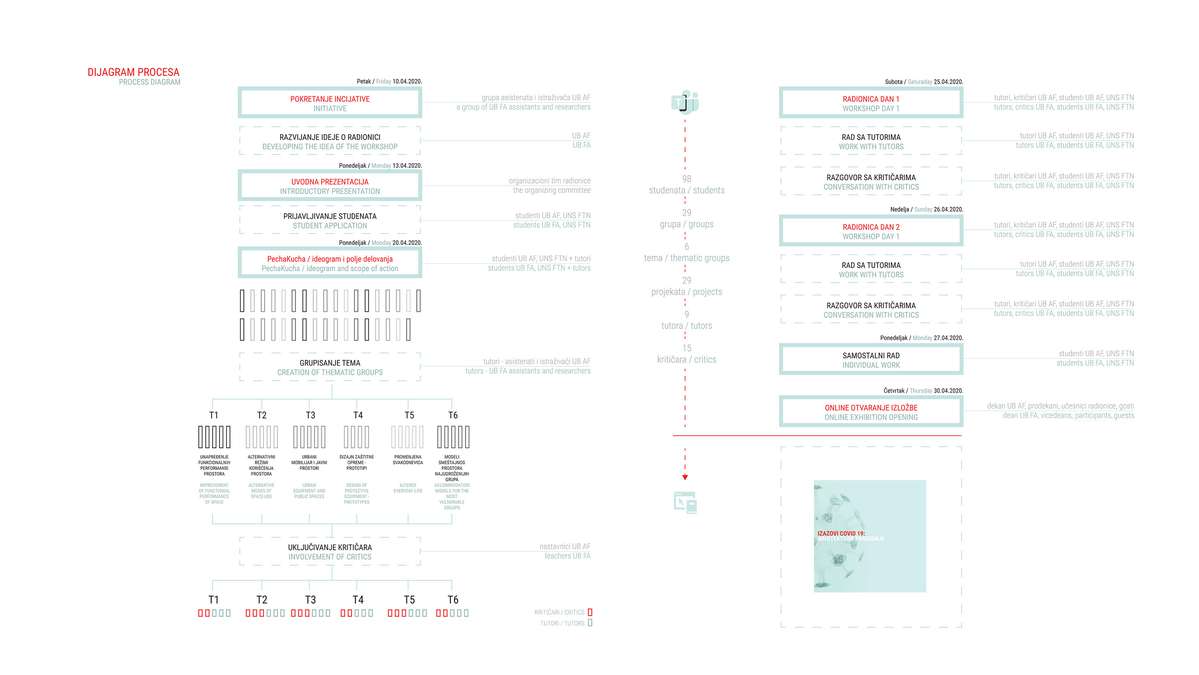
The initial phase was held as an Introductory Presentation, in which tutors presented the workshop topic and expected results. In the 2nd phase, students presented an initial scope of action through PechaKucha presentations. The main focus of the 3rd and the most dynamic phase was the development of conceptual designs through open discussions between students, tutors, and critics. During the 4th phase, students worked independently to finalize their conceptual designs based on received feedback.
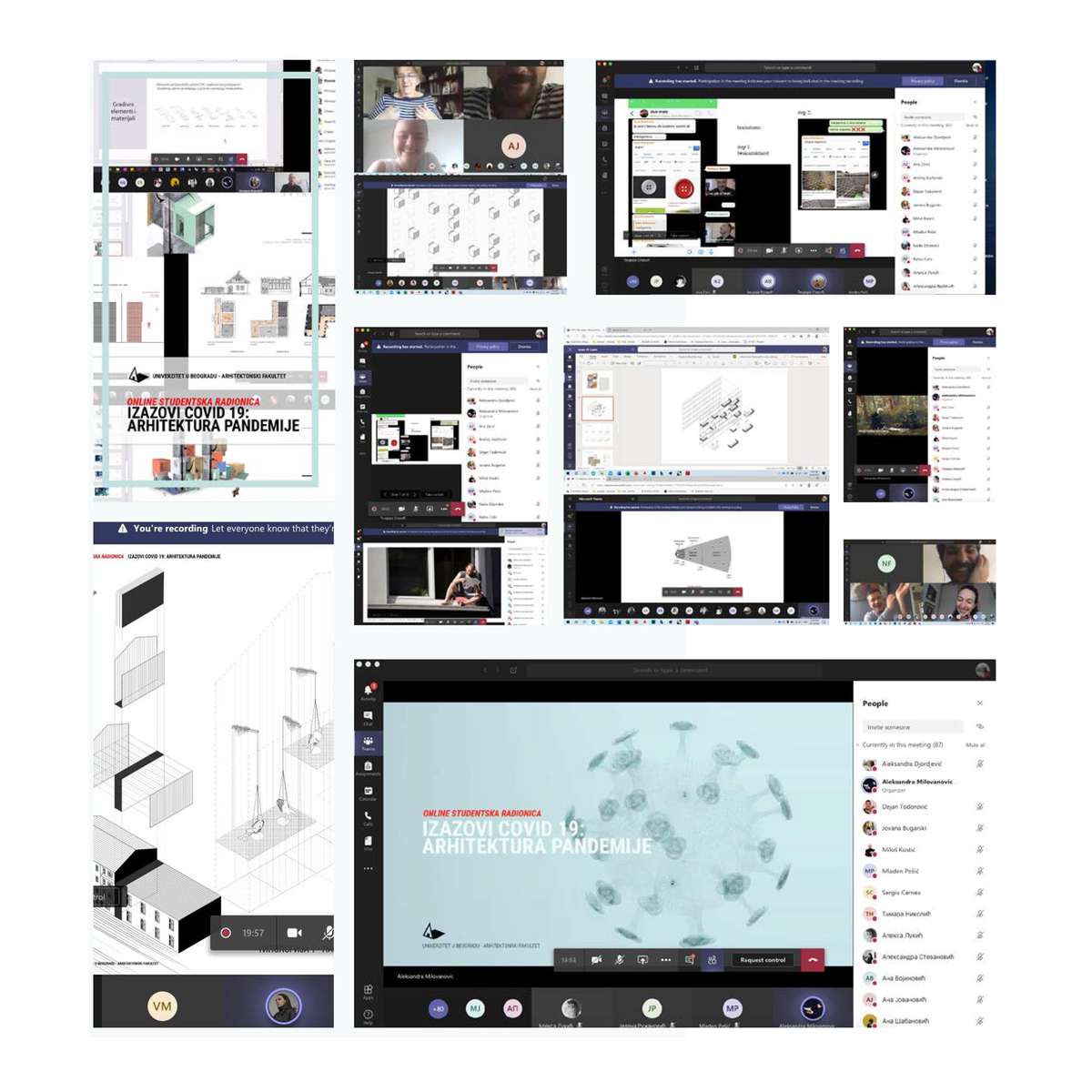
Building on the existing practice of organizing workshops in time of emergency, constant endeavor to improve the education process through innovative curricular and extracurricular activities in architecture and urbanism at the University of Belgrade–Faculty of Architecture. The workshop was organized using the online surrounding, perceived as a digital workspace, and structured to enable communication through several channels—general, thematic groups, and student teams.
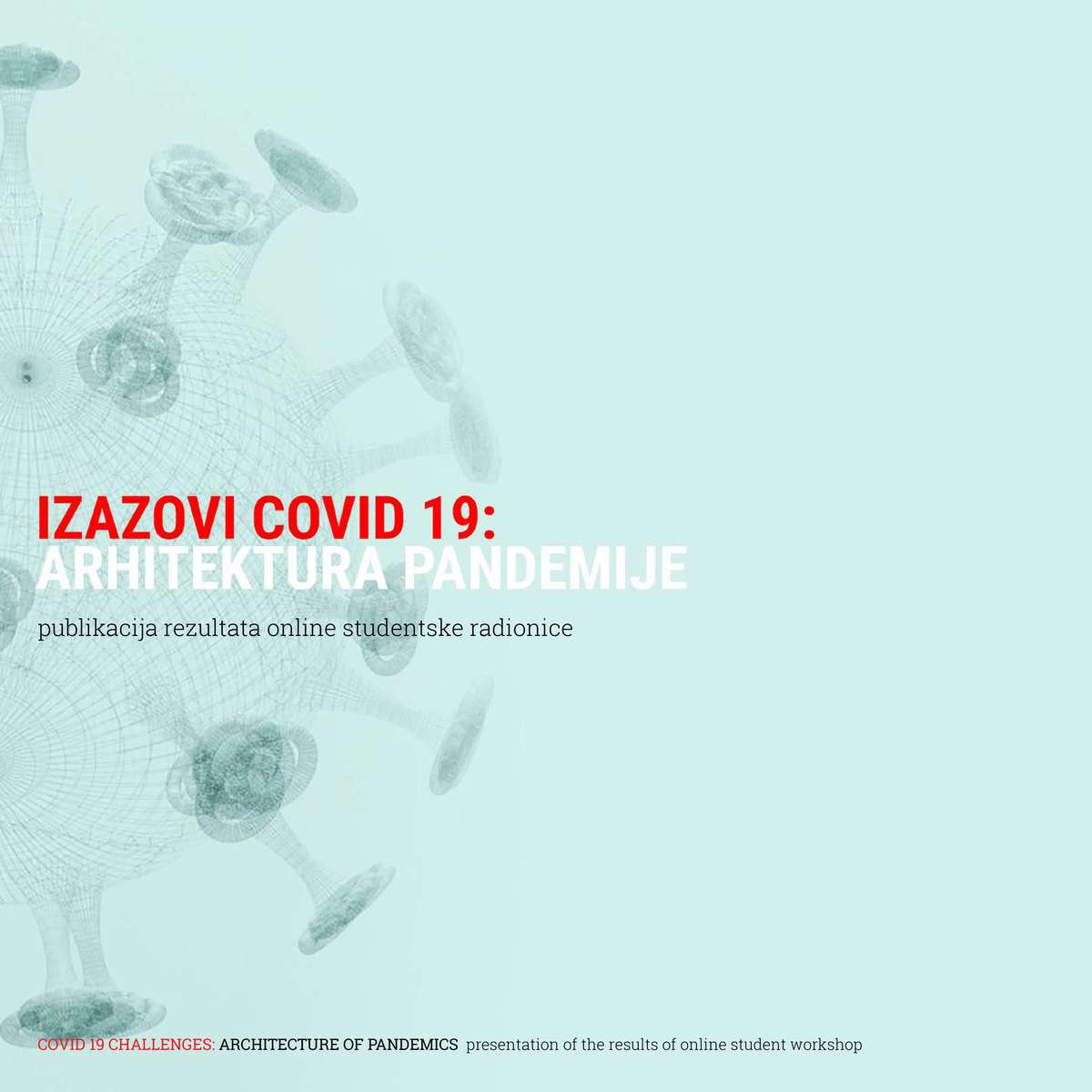
In three days, the tutors prepared a bilingual e-book in which the research perspectives of the workshop, thematic frameworks, comments, and reflections of the critics were explained, as well as the presentation of students, works through textual explication and graphic presentation. In order to present the results of the workshop to the wider community, an online exhibition was organized and opened by the dean of the UB-FA accompanied by vice deans, other professors, and workshop participants.
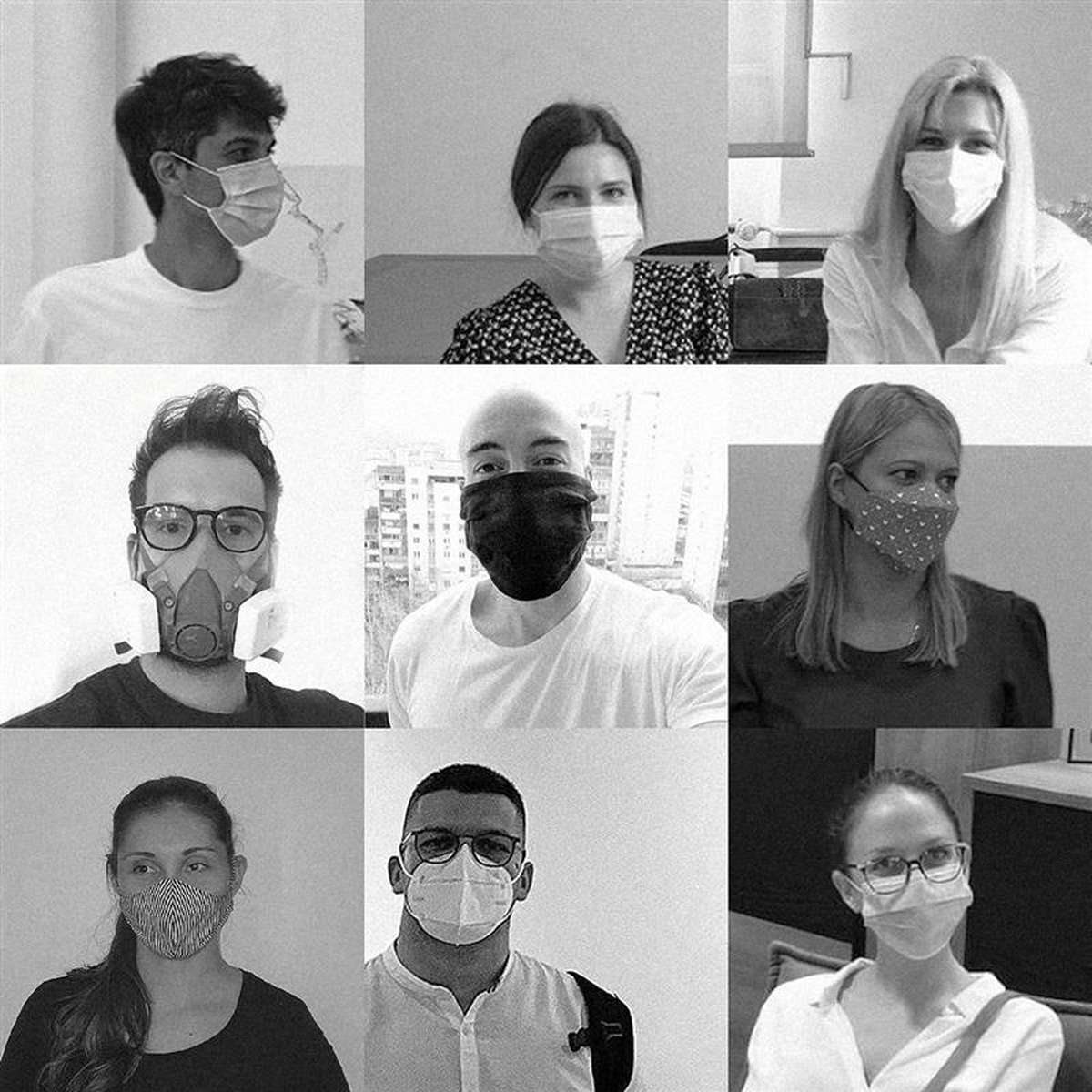
The research is based on the experiences of a group of teaching and research assistants who initiated and organized online workshop.
Covid-19 Challenges: Architecture of Pandemics
Covid-19 Challenges: Architecture of Pandemics

- New alliances
The impact of the online student workshop can be recognized on two levels. The first one reflects the professional contribution coinciding with the COVID–19 challenges in the form of 29 conceptual designs. The architecture of pandemics formed a scope within which participants were encouraged to seek the answers to contemporary societal challenges, in both a process and problem-oriented manner. In that order, the disciplinary framework of architecture and urbanism is once again illuminated as a symbiosis of technical, technological, socio-humanistic, and artistic aspects. The second level of contribution is reflected in the developed model and methodological framework of online learning, which can serve as a model for the realization of similar pedagogical activities in the future. Future actions should focus on enabling active experimentation in times of pandemics while using the advantages of an online environment to gain valuable insights that could enrich the learning experience.
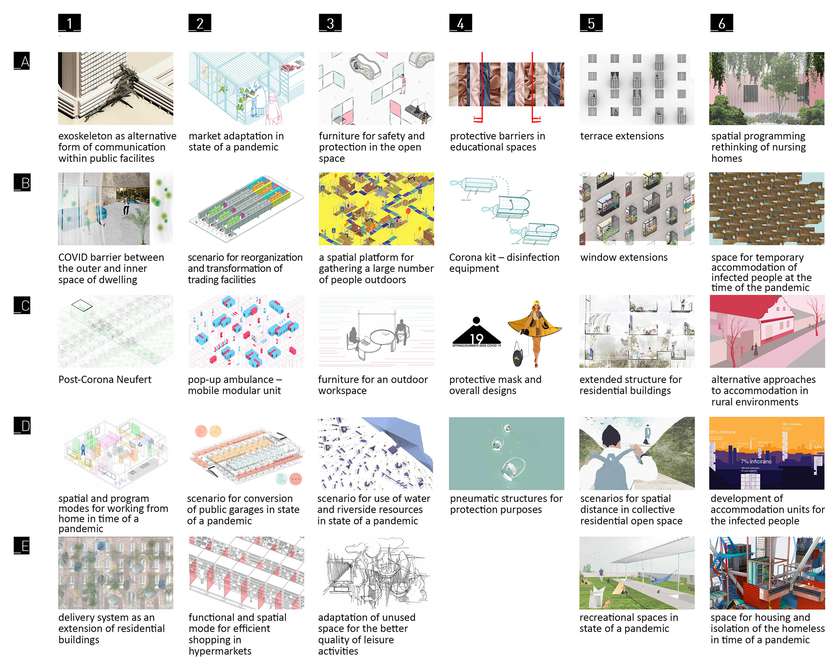
In the workshop assessment and dissemination phase of the research, the results of the workshop were systematized in the form of 29 design proposals grouped into 6 thematic frameworks: (1) Improvement of Functional Performance of Space, (2) Alternative Modes of Space-use, (3) Urban Equipment and Public Spaces, (4) Design of Protective Equipment - Prototypes, (5) Altered Everyday Life, and (6) Models of Accommodation for the Most Vulnerable Groups.
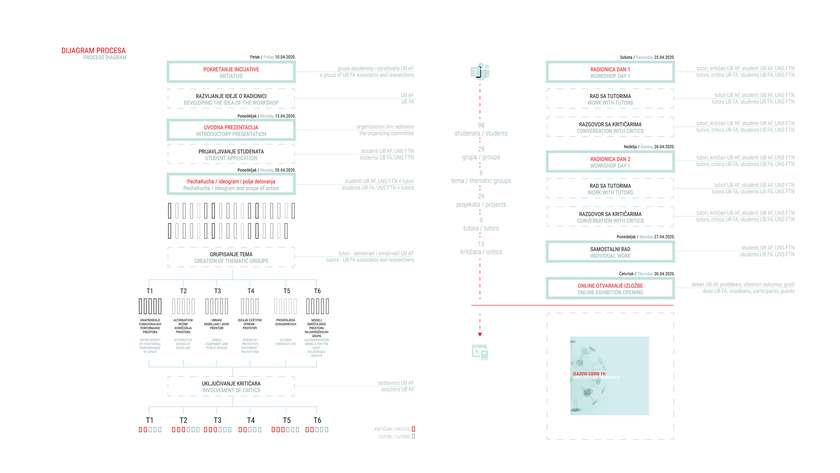
The initial phase was held as an Introductory Presentation, in which tutors presented the workshop topic and expected results. In the 2nd phase, students presented an initial scope of action through PechaKucha presentations. The main focus of the 3rd and the most dynamic phase was the development of conceptual designs through open discussions between students, tutors, and critics. During the 4th phase, students worked independently to finalize their conceptual designs based on received feedback.
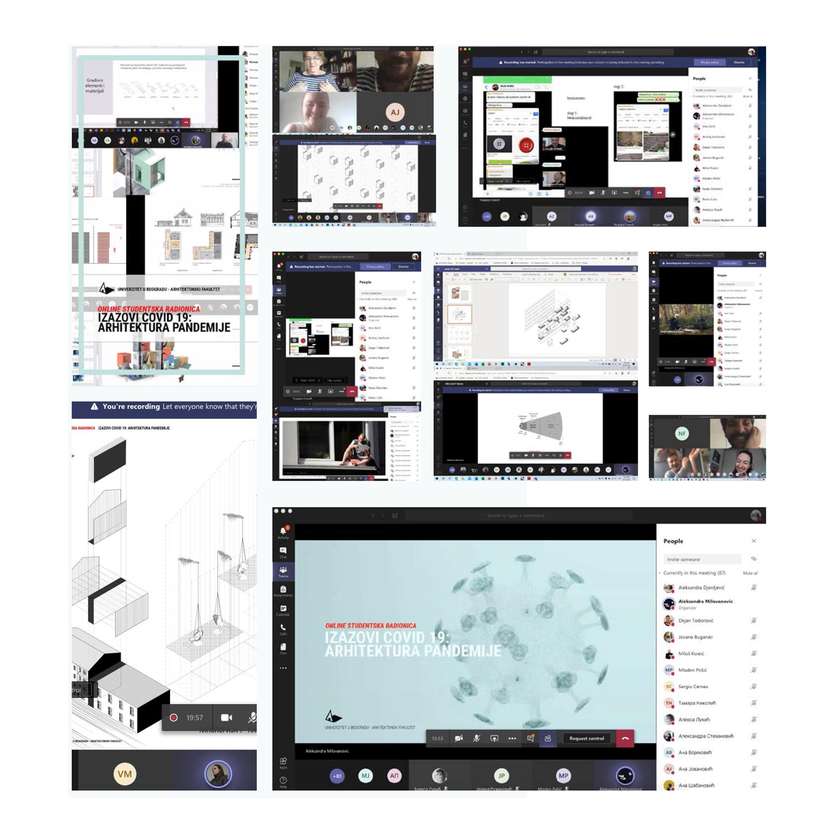
Building on the existing practice of organizing workshops in time of emergency, constant endeavor to improve the education process through innovative curricular and extracurricular activities in architecture and urbanism at the University of Belgrade–Faculty of Architecture. The workshop was organized using the online surrounding, perceived as a digital workspace, and structured to enable communication through several channels—general, thematic groups, and student teams.
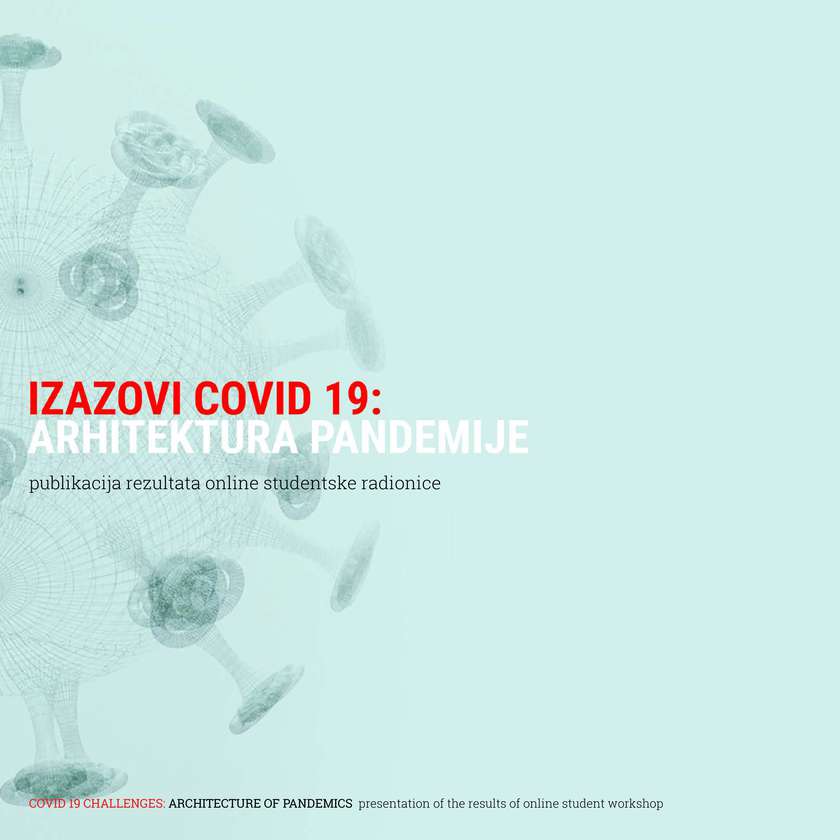
In three days, the tutors prepared a bilingual e-book in which the research perspectives of the workshop, thematic frameworks, comments, and reflections of the critics were explained, as well as the presentation of students, works through textual explication and graphic presentation. In order to present the results of the workshop to the wider community, an online exhibition was organized and opened by the dean of the UB-FA accompanied by vice deans, other professors, and workshop participants.
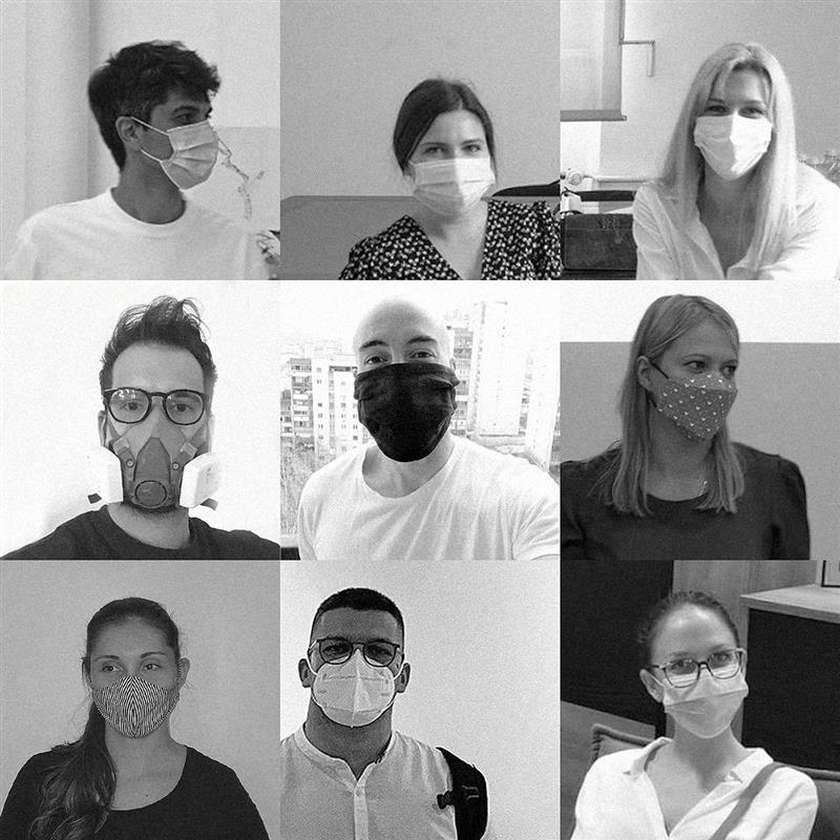
The research is based on the experiences of a group of teaching and research assistants who initiated and organized online workshop.